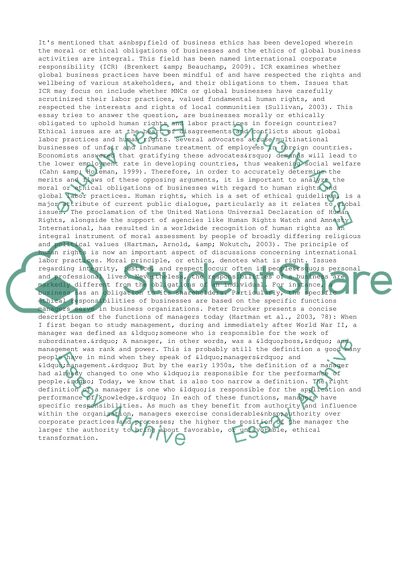Cite this document
(“Human Rights and Labor Practices in Foreign Countries: Is a Business Research Paper”, n.d.)
Retrieved from https://studentshare.org/business/1403756-human-rights-labor-practices-in-foreign-countries
Retrieved from https://studentshare.org/business/1403756-human-rights-labor-practices-in-foreign-countries
(Human Rights and Labor Practices in Foreign Countries: Is a Business Research Paper)
https://studentshare.org/business/1403756-human-rights-labor-practices-in-foreign-countries.
https://studentshare.org/business/1403756-human-rights-labor-practices-in-foreign-countries.
“Human Rights and Labor Practices in Foreign Countries: Is a Business Research Paper”, n.d. https://studentshare.org/business/1403756-human-rights-labor-practices-in-foreign-countries.


